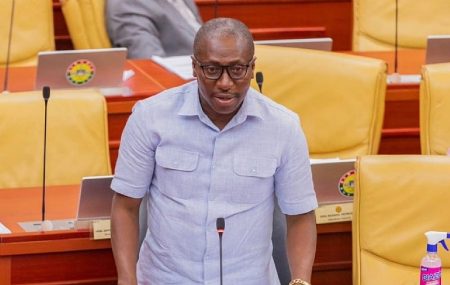The National Petroleum Authority (NPA) has announced a one-week postponement of the implementation date for the new GHS 1 fuel levy, shifting it from the originally scheduled June 9, 2025, to June 16, 2025. This decision comes in response to concerns raised by industry stakeholders, primarily the Chamber of Oil Marketing Companies (COMAC), regarding the initial timeline’s rushed nature and lack of adequate consultation. The levy, recently authorized by Parliament and receiving presidential assent on June 3, 2025, aims to generate additional revenue for the government. However, its initial announcement met with resistance from the oil marketing sector, which argued that the rapid implementation would impose undue financial burdens on their operations.
The NPA’s responsiveness to the industry’s concerns signifies a positive shift towards collaborative policy implementation. Acting Chief Executive Officer of the NPA, Edudzi Tamaklo, acknowledged the validity of COMAC’s objections, emphasizing the importance of dialogue and understanding in navigating complex policy changes. He attributed the successful resolution to open communication and a willingness to address the practical challenges faced by the oil marketing companies. This collaborative approach allowed for a revised timeline that balances the government’s revenue needs with the industry’s operational realities.
COMAC’s intervention played a crucial role in prompting the postponement, highlighting the significance of stakeholder engagement in shaping effective policy. Their proactive communication with the NPA facilitated a constructive dialogue, enabling the regulator to appreciate the potential negative impacts of the rushed implementation. This engagement enabled both parties to reach a mutually agreeable solution, demonstrating the value of a collaborative approach to policy development and implementation. The postponement allows OMCs sufficient time to adjust their financial operations and prepare for the new levy, mitigating potential disruptions to the fuel supply chain.
The one-week delay allows oil marketing companies (OMCs) a crucial window to adjust their financial operations and prepare for the levy’s implementation. This period enables them to incorporate the new cost into their pricing structures and ensure a smooth transition without disrupting fuel supply or causing undue price volatility. The postponement demonstrates the NPA’s commitment to a balanced approach, recognizing the need for revenue generation while also considering the operational constraints faced by the industry. This proactive adaptation to stakeholder feedback underscores the importance of a flexible and responsive regulatory environment.
This incident sets a positive precedent for future policy implementation within the petroleum sector. It demonstrates the efficacy of open communication and collaboration between regulatory bodies and industry stakeholders. By actively engaging with industry concerns and demonstrating a willingness to adapt to practical challenges, the NPA has fostered a sense of trust and partnership within the sector. This collaborative approach can serve as a valuable model for navigating future policy shifts, ensuring that new regulations are implemented in a manner that minimizes disruption and maximizes effectiveness.
The successful resolution of this issue highlights the importance of a consultative approach to policymaking. By engaging with stakeholders early in the process and remaining open to feedback, regulators can anticipate potential challenges and develop solutions that address the needs of all parties involved. This proactive approach not only fosters a more collaborative and productive relationship between regulators and industry players but also contributes to more effective and sustainable policy outcomes. The NPA’s responsiveness in this instance sets a positive example for other regulatory bodies, demonstrating the benefits of a flexible and stakeholder-centric approach to policy implementation.














